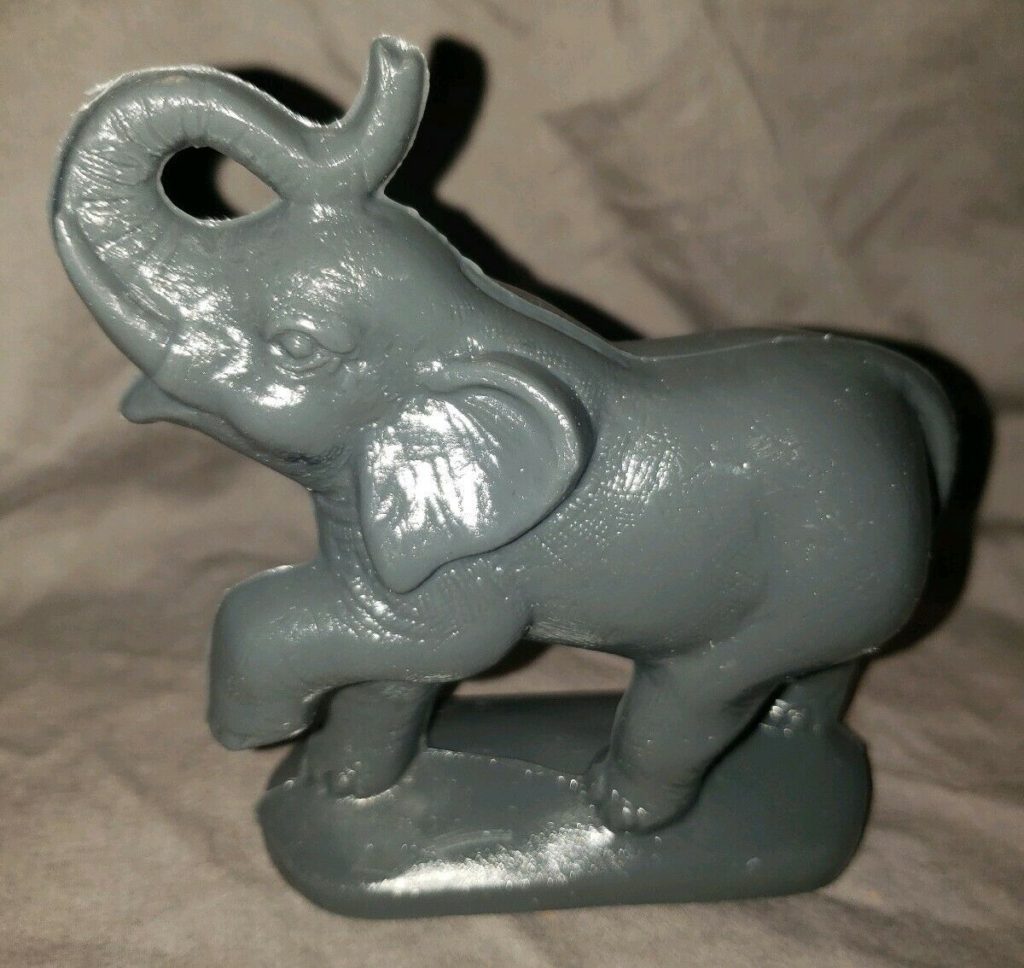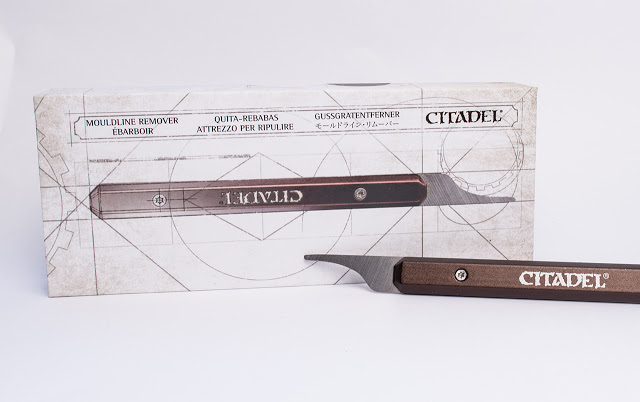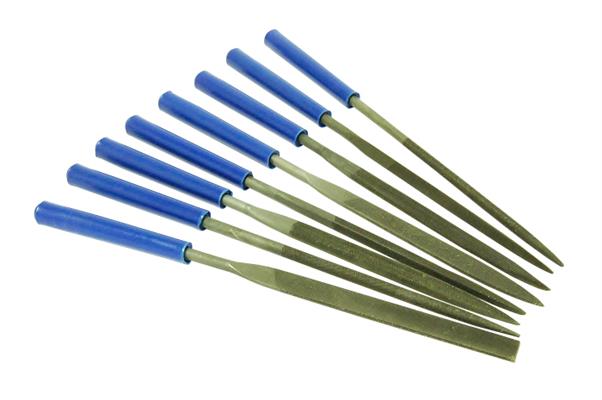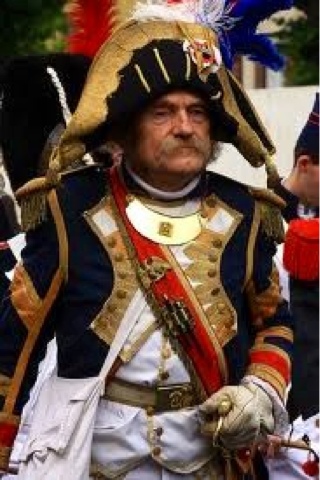Hey everyone! Adam, from TFG Radio, here to talk about a wonderful part of building your awesome models.
Anyone one who has read this series for a while know that I am not a fan of painting. I play in a lot of tournaments, well in the past anyway, and going to tournaments was a great way to motivate me to get my army painted. No matter how long I had to stay up the night before, I would have my army painted and ready to go. Like I said, my loathing of having to paint my models is well documented. On the other hand, I really enjoy building the models themselves. Especially with Games Workshop models, I enjoy the options available when building units that allows for customization, although it seems to be a bit less so nowadays. The one thing, though, that really gives me issues are mold lines.

For those that don’t know, or may not know what I’m talking is called, mold lines are those small lines on models that basically show where the two molds came together to create the sprue for the model. You don’t see it as much in Games Workshop models today, but if you get some of those older kits, they are definitely there. If you play other game systems or build other kits, you do see them more often. Ideally you would try to remove these or file them down to a point that the surface is smooth once again. You do this because the mold lines cause you issues when painting and can sometimes bring out the immersion of the model after it is painted. It can bee a hassle to remove, especially on non space marine models, if the mold line run through an area that has a lot of nooks and crannies. Depending on the tool you are using to remove the mold lines, personal injury can also occur. This is called “Sacrifices to the Blood God”

Speaking of tools, there are a few ways of removing mold lines. The obvious one is the X-Acto knife. It’s usually the first tool that people use when they first get into the hobby. Cuts really well but almost too well when you accidentally cut a huge chunk of your model instead of the small piece of plastic sticking out, not to mention cutting yourself in the process. Remember kids, cut “At your buddy, not your body”. Games Workshop also sells a mold line remover, which is just a blunt X-Acto knife, but it is sometimes hard for it to reach certain parts of a model. What I also use are small files. Depending on the size, they can easily get to places that most other instruments can’t. They help tremendously and do not bring harm to yourself or your loved ones, at least as far as I know.

All this is well and good but the real issue I have is time, and laziness. I just want to quickly put together my models and have them painted and on the battlefield. The sooner the better. I don’t have time for all this extra crap. Luckily, early on , I only played chaos space marines. They have mold lines like everyone else but because they had so much extra gubbins on the model it was sometimes hard to see the mold line at all. Since this was the case I easily just pass it off as a chaos mutation and move on. Unfortunately because I play other armies and game systems this is not the case anymore and that make me sad, and tired just thinking about it.

That’s all for this week. Let me know what you think, and if you had any model building mishaps, in the comments section below. Don’t forget to visit our Facebook, Twitch, and Patreon pages to stay up to date on what we’re up to and when episodes drop!
And remember boys and girls, Frontline Gaming sells gaming products at a discount, every day in their webcart



Mold = a dull town in NE Wales
mould = a shaper for plastic, iron etc
Mold:
noun
1.
a hollow container used to give shape to molten or hot liquid material (such as wax or metal) when it cools and hardens.
You English folk spell things differently with your colours, armours, centres, and such.
“You English folk spell things differently with your colours, armours, centres, and such.”
I think you meant to say “You English folk spell things *properly*…”
😉
I’m surprised you could even spell “properly” without any extra letters.
Amusingly enough, the American spellings are actually the original English spellings for those words that were brought over during the Colonial period, and it was _England_ that later changed things and mutated the way the words were spelled.
So really if you think about it, it’s us Yanks who are retaining the _true_ British spellings for the words!
This is wrong, actually, although you’re not the first person I’ve seen make the claim. In reality the -our ending was brought over for French-derived words with the Norman conquest and was the de facto English language standard from at least the 1600’s, but it was changed in America with the publication of Webster’s dictionary several decades post-Revolution.
What Office Waaagh! say isn’t by itself contradictory with abusepuppy, even if it look so. It depend on what word they used before the hostile french takeover of some words.
That being said, I fully expect any and all english with self-worth accepting that the true spelling is “color” just to not add filthy french roots in their languages.
Sorry to disappoint, Ohlmann, but most of our modern language has French roots. If you wanted to speak English with all the French taken out you’d practically wind up speaking German. Prior to the Norman conquest and the introduction of French roots, Old English was a Germanic language, written with a modified alphabet, and is not comprehensible to modern English speakers. Most of the words with variant spellings were introduced later from French – “colour”, for example, came to English via French in the 14th century, and was always spelled with a “u” until Webster’s dictionary caused American spelling to diverge.
Well, english are my ennemis jurés, so I hope for them to hop on any pretext to upkeep that tradition even if incorrect :p
Note that the hypothesis that colour come from french hit the significant problem that in french, it’s *coulor* (well, couleur now). That being said, it’s very possible that before the normands invaded the word for color was completely unlike color or colour.
Look, we Americans don’t let facts get in the way of our beliefs about the world. It’s what makes us strong and plague-ridden.
The Norman dialect was its own peculiar animal, and French spelling wasn’t really standardized anyway until the Académie Francaise came along much later. The Anglo-Norman word was apparently roughly spelled “colur” before becoming “colour” shortly afterwards. Incidentally, the original Old English word, hiw, survives as our word “hue”.
I hate to let you down, but I actually love the French language. I haven’t lived in a French-speaking area for a while, but I do try to keep the practice up and I send my kids to an all-French school. J’espère que vous n’êtes pas trop déçu de n’avoir pas trouvé un nouvel ennemi juré…
lol
Rob Butcher, trying to make an argument based on a meaningless technicality but still getting even that wrong?
Shocked, I am SHOCKED.